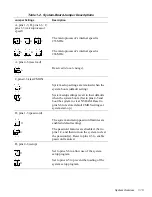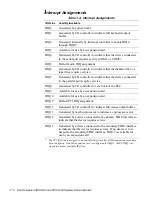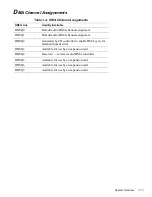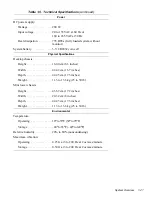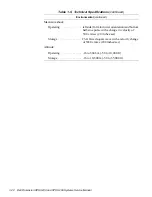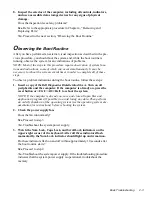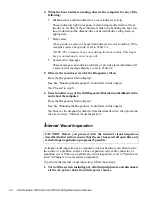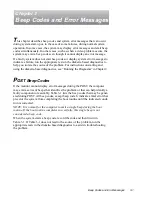
Beep Codes and Error Messages
3-1
Chapter 3
Beep Codes and Error Messages
T
his chapter describes beep codes and system error messages that can occur
during system start-up or, in the case of some failures, during normal system
operation. In some cases, the system may display error messages and emit beep
codes simultaneously. In other cases, such as when a video problem occurs, the
system may emit a beep code even though it cannot display an error message.
If a faulty system does not emit beep codes or display system error messages to
indicate a failure, run the appropriate tests in the diskette-based diagnostics to
help you isolate the source of the problem. For instructions on starting and
using the diskette-based diagnostics, see “Running the Diagnostics” in Chapter 2.
P
OST Beep Codes
If the monitor cannot display error messages during the POST, the computer
may emit a series of beeps that identifies the problem or that can help identify a
faulty component or assembly. Table 3-1 lists the beep codes that may be gener-
ated during POST. All beep codes, except beep code 8, indicate a fatal error that
prevents the system from completing the boot routine until the indicated condi-
tion is corrected.
NOTE: It is normal for the computer to emit a single beep during the boot
routine. If the boot routine completes successfully, this single beep is not
considered a beep code.
When the system emits a beep code, record the code and then find it in
Table 3-1. If Table 3-1 does not lead to the source of the problem, run the
appropriate tests in the diskette-based diagnostics to assist in troubleshooting
the problem.
Summary of Contents for Dimension XPS H233
Page 1: ... HOO LPHQVLRQ 36 DQG 36 6 VWHPV 6 59 0 18 ...
Page 2: ......
Page 3: ... HOO LPHQVLRQ 36 DQG 36 6 VWHPV 6 59 0 18 ...
Page 84: ...A 16 Dell Dimension XPS H233 and XPS H266 Systems Service Manual ...
Page 88: ......

